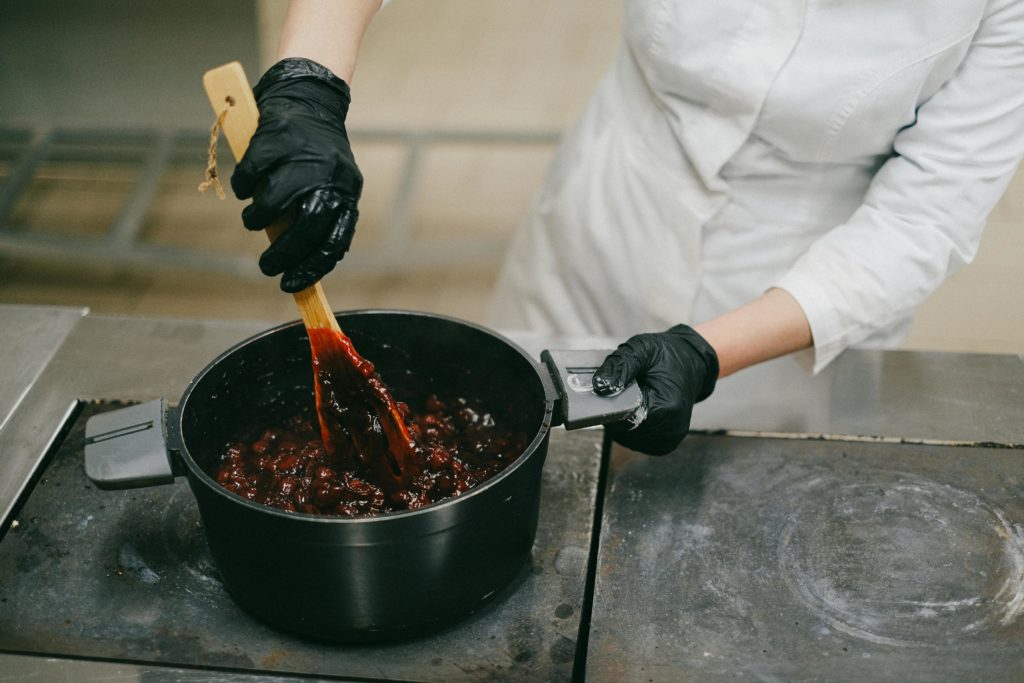Commercial Feature
7 Culinary Courses That Can Launch a Full-Time Career

Breaking into the food world isn’t just about talent in the kitchen. These days, structured training can turn an interest into a long-term profession, whether you dream of managing a fine-dining restaurant, curating menus, or carving out a niche in food writing.
Culinary courses don’t just teach technique; they also help students build confidence, refine creativity, and open doors to roles that might have felt out of reach.
From knife skills to wine pairing, a course can be the bridge between cooking as a hobby and a career that pays the bills. For many, it is also about joining a community of food lovers who want to push themselves further.
Professional Cookery Foundations
Every chef needs a sturdy base, and professional cookery programs provide exactly that. Students learn essential techniques such as precise knife work, stock preparation, and sauce mastery, and they also build discipline and respect for the craft.
It is often these fundamentals that help graduates land their first kitchen role and show they can handle the fast pace of service. Many alumni say the sense of routine, early mornings, strict standards, and repetition is what prepares them for the reality of a professional kitchen.
A strong foundation makes later specialisation smoother, and it signals to employers that you understand how a brigade operates.
The World of Wine and Spirits
Hospitality is not only about what is on the plate. A well-rounded food career can be built through an understanding of beverages, particularly wine. Specialist wine courses give aspiring sommeliers, bar managers, and food writers a framework for tasting, regional knowledge, and confident food pairing.
The ability to guide guests through a list, explain styles without snobbery, and suggest pairings that elevate a dish is valued across restaurants and hotels.
For career changers, this path can be a faster route to front-of-house leadership. It also complements kitchen roles, since chefs who grasp structure and acidity create menus that sing with a glass beside them.
Baking and Pastry Arts
The art of pastry has a magic of its own. From laminated croissants to intricate plated desserts, pastry-focused courses let students specialise in a craft that blends science and artistry.
These programmes encourage exploration of flavour balance, precision timing, and presentation that feels almost architectural. Graduates often step into patisserie roles or become dessert specialists in restaurants, where technique is the ticket to creative freedom.
The entrepreneurial route is common too, since a well-trained pastry chef can launch a micro-bakery, supply cafés, or build a celebration-cake studio that scales with demand.
Culinary Entrepreneurship
Not everyone wants to work under someone else’s roof forever. Courses in culinary entrepreneurship cover the nuts and bolts of running a business, from menu costing and supplier relations to marketing and team management.
In cities with a vibrant food scene, like the Cambridge food scene, graduates often test ideas through pop-ups, supper clubs, and market stalls before committing to bricks and mortar. A good course turns vague enthusiasm into a workable model and a basic cash flow plan.
You leave with realistic margins, a sense of operational rhythm, and the confidence to say no to menu creep.
Plant-Based Culinary Training
As diners grow more conscious of health and sustainability, chefs who understand plant-based cooking are in demand. Courses in vegan or vegetarian cuisine go beyond simple substitutes and into fermentation, umami building, and modern plating that holds its own against classic fine dining.
This really isn’t just a trend. It’s a way to future-proof skills that help restaurants diversify menus and attract new guests Many establishments now dedicate sections to plant-based dishes, while others build entire brands on them.
Hospitality and Service Management
Behind every smooth-running dining room is a team that understands service inside out. Courses in hospitality management cover guest relations, floor planning, reservations systems, and training that helps staff anticipate needs before they are spoken.
For those less inclined toward the heat of the kitchen, this is a route into leadership that still keeps you close to food culture.
Employers value graduates who can blend calm with problem-solving, especially during a busy Saturday double. It is often these candidates who are quickest to get a job, since the role touches revenue, reputation, and repeat business.
Food Writing and Media
Not all culinary careers sit behind a stove. Courses in food journalism and media explore storytelling, photography, audio, and digital strategy.
With the growth of newsletters, podcasts, and video-first platforms, creators who can convey flavour and place through words or images turn side projects into income. Some graduates freelance, others head to magazines, production companies, or agencies that specialise in hospitality.
Strong editing, an eye for detail, and a clear point of view are teachable, and they pair well with hands-on kitchen knowledge. A sharp pen, or a steady camera, can open doors as wide as a chef’s knife.
A culinary course can set you on a path toward a fulfilling profession, whether that means managing a dining room, designing menus, or writing the next great food column. The opportunities are diverse, but they share the same first step: investing in structured learning that connects passion with practical skills.
 News / Hundreds of Cambridge academics demand vote on fate of vet course20 February 2026
News / Hundreds of Cambridge academics demand vote on fate of vet course20 February 2026 News / Judge Business School advisor resigns over Epstein and Andrew links18 February 2026
News / Judge Business School advisor resigns over Epstein and Andrew links18 February 2026 News / University Council rescinds University Centre membership20 February 2026
News / University Council rescinds University Centre membership20 February 2026 News / Petition demands University reverse decision on vegan menu20 February 2026
News / Petition demands University reverse decision on vegan menu20 February 2026 News / Caius students fail to pass Pride flag proposal20 February 2026
News / Caius students fail to pass Pride flag proposal20 February 2026





